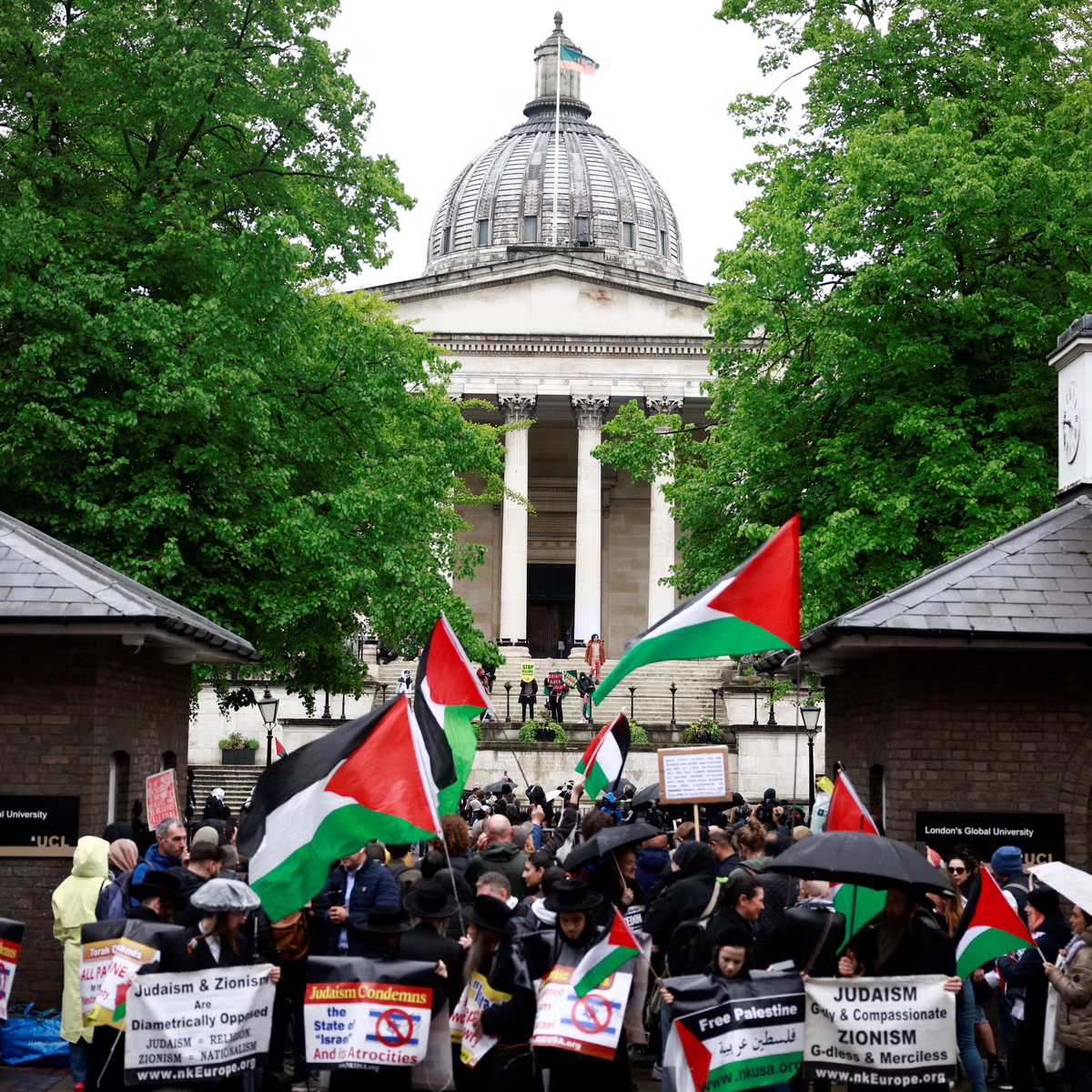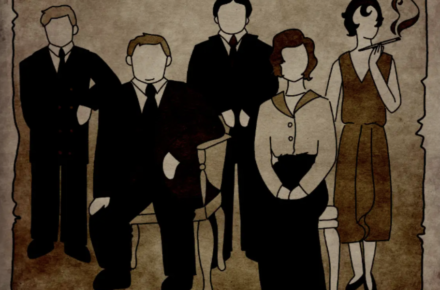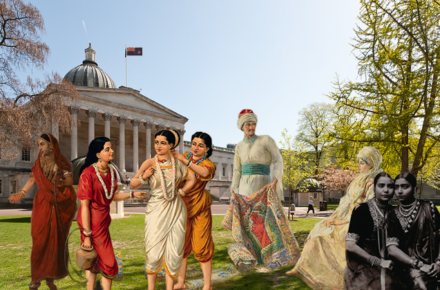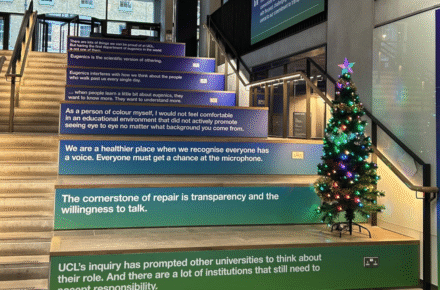
Dayan Mustafa
In his attempt to say nothing at all (nothing political, that is) Dr Michael Spence, the UCL Provost, has revealed more than he might have wished about his inclinations––and by extension, those of the neoliberal business who embody the University’s higher management.
Many of you will have already read Dr Spence’s latest update: ‘Balancing rights and responsibilities on campus in a difficult time’, sent to students on the 2nd of May––this past Thursday. If the therapyspeak-infused title misled you, he’s referring to the State of Israel’s ongoing ethnic cleansing of Palestinians in Gaza; the fascistic state violence against student protestors across the USA; and UCL’s official (non-)stance on it all. A ‘difficult time’.
His main concern, which I am in no place to doubt, is the wellbeing of the university’s staff and students. This is not the source of my disagreement. Rather it is with the callous framing of events which characterises his update post.
Dr Spence has downplayed the weight of the situation to an irresponsible degree. The update opens with reference to the impact of the ‘Israel – Gaza crisis’, locally and internationally. The framing of the war only in terms of Israel and Gaza, though neutral and matter-of-fact on the surface, effectively erases the Palestinian identity within the discourse (it isn’t mentioned a single time in the entire text). It posits an ahistorical understanding of the barbarism we see unfolding before us, beginning perhaps on October 7th, 2023, or in 2006 when Hamas was elected to govern Gaza. To speak responsibly (for that is Dr Spence’s purported aim) on the war on Gaza is to situate it within the 100+ year-long settler colonial project which has, since its inception, sought to violently expel Palestinians from their land. Any contextualising of this sort becomes unavailable once Palestine is excluded from the conversation––something our Provost has unfortunately done.
The violent neutrality of his language becomes more egregious in how he frames the galvanised campus movements ‘in the US and elsewhere’. They are, to him, ‘mass protests, which have escalated into violence in places, resulting in police involvement.’ He’s comfortable enough attributing violence to the student protests (which on the most part have been peaceful, reclaiming the spaces they pay extortionate amounts of money for) while the brutal, disproportionate response of the state’s stormtroopers is simply rendered as ‘police involvement’. I must remind everyone reading, including Dr Spence, that the US police have used tear gas and rubber bullets on UCLA and Emory University students, to name just two instances. Officers at Washington University in St. Louis relentlessly beat SIUE History professor Steve Tamari, dragged him across campus, and beat him some more for good measure, hospitalising him with nine broken ribs and a broken hand. We have witnessed countless university administrations send stormtroopers on their own students and faculty members and the most our Provost is willing to call it is ‘police involvement’? If academic freedom is so important to him, he should display solidarity with the professors being arrested for converting the lessons of their research into practice.
This whitewashing of the police response overseas should be viewed as little less than an insult to our own students. We, who refuse to put up with the violence of business-as-usual, see in the American students our mirror image. In slightly altered circumstances, it would be us on the receiving end of rubber bullets, beatings, and tear gas. As the solidarity movement escalates in turn with the inaction of our institutions, I fear that the former will be met with similar violence.
Appeals to liberal pluralism are another means by which the Provost may wash UCL’s hands of any responsibility in this difficult time. He writes: ‘I have argued in a previous message that support for academic freedom and freedom of debate requires that a university not adopt an institutional position in relation to any given issue, including an issue of armed conflict.’ This sentiment would be somewhat admirable if not for the fact that UCL has official ties with the likes of BAE, Elbit Systems, and Lockheed Martin––those arming the IDF’s current onslaught on Gaza. As long as these connections remain, as long as we funnel our research and students into imperialist collaboration, then UCL does maintain a position on armed conflict, and it’s not on our side.
What such statements as Dr Spence’s reveal is something we must be ignorant not to know by now: that “neutrality” invariably works in favour of the status quo. The implicit separation he makes between UCL’s ‘institutional position’ and its business relations with the profiteers of genocide is symptomatic of both the logic of ideology and a deeper shift in the functioning of universities. The latter, more than anything, now resemble businesses. ‘There was a time,’ writes the late anthropologist David Graeber, ‘when academia was society’s refuge for the eccentric, brilliant, and impractical. No longer. It is now the domain of professional self-marketers.’ The laws of exchange, of revenue, of profit, reign supreme in the university. The appearance of human relations––of human suffering––as business transactions (e.g. UCL/BAE partnerships) is now so dominant that it seems to exist outside of ideology; whereas in fact it is the most ideological aspect of our lives.
The consistent agitation by the solidarity movement on campus shows us that such illusions have collapsed. If Dr Spence truly wishes to be non-partisan, he must commit to divestment.








